July 36: When Dhaka’s people took over
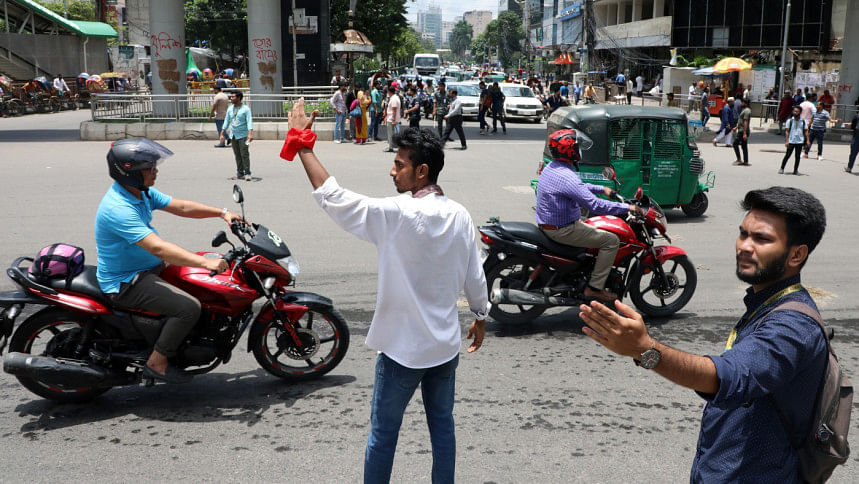
Some months just refuse to end. July 2024 was one of them. It dragged on so long, it gave us a new date; July 36!
What began as just another month of dodging the heat cracked open into something raw, loud, and surprisingly human. Suddenly, the "apolitical generation," the ones often mocked for chasing passport queues instead of protest slogans, found itself at the centre of it. Not as spectators, but as the ones who stood up, showed up and performed so well that we are still writing about it.
Because on July 36, i.e., 5 August, 2024, when Dhaka woke up to a power vacuum, it wasn't the institutions that showed up. It was the people. The very people who were never supposed to.
By noon, the Prime Minister had fled. The government had vanished into thin air. The massive, mad, magnificent city we call home was left to fend for itself. And not just Dhaka. The whole country.
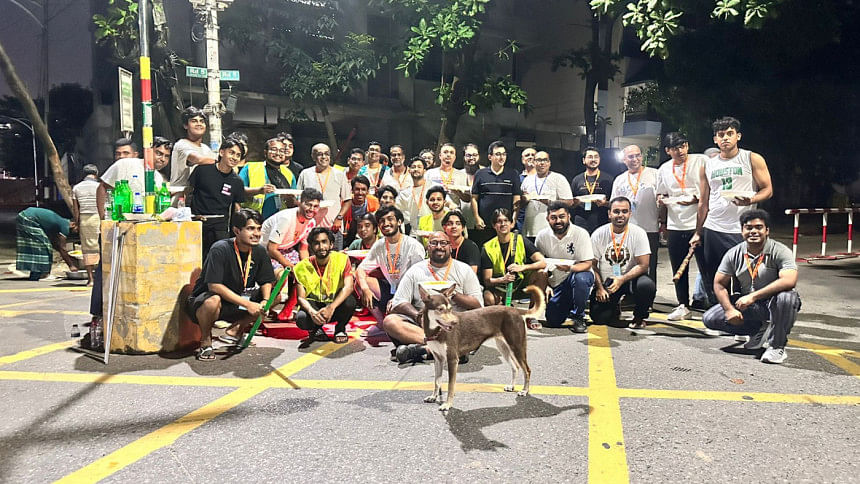
With no traffic police, intersections turned into warzones. Criminals didn't wait for announcements. Pharmacies were looted. Delivery vans were hijacked. Homes were ransacked. Grocers broken into.
And the rumours? They came in like a flood. Some true, some almost true, and others that sounded like scenes from dystopian films. But the scariest part was that no one really knew what was going on. Because no one was in charge.
The first few nights were indeed terrifying. Fires lit up dark streets. Gunshots echoed through alleys that usually heard nothing louder than a rickshaw bell. The panic was real. And so was the silence that came with it.
But then something else emerged. Something older than politics.
Yes, the very apolitical people showed up.
Not in a polished, heroic way. In a messy, uncoordinated, human way. With sticks. With whistles. With torches. Ordinary people stood guard at the entrances of their alleys, taking shifts through the night. From Mohammadpur to Mirpur, and Banani to Badda, they came out. Not to fight. Just to protect.
In Dhanmondi, kids cleared the roads. Not because anyone asked, but because someone had to. Students started directing traffic. Aunties brewed tea for night watch groups. A group of kids even rolled out a Pajero, cricket stumps, and a German shepherd, just in case a mugger needed a lesson in street justice.
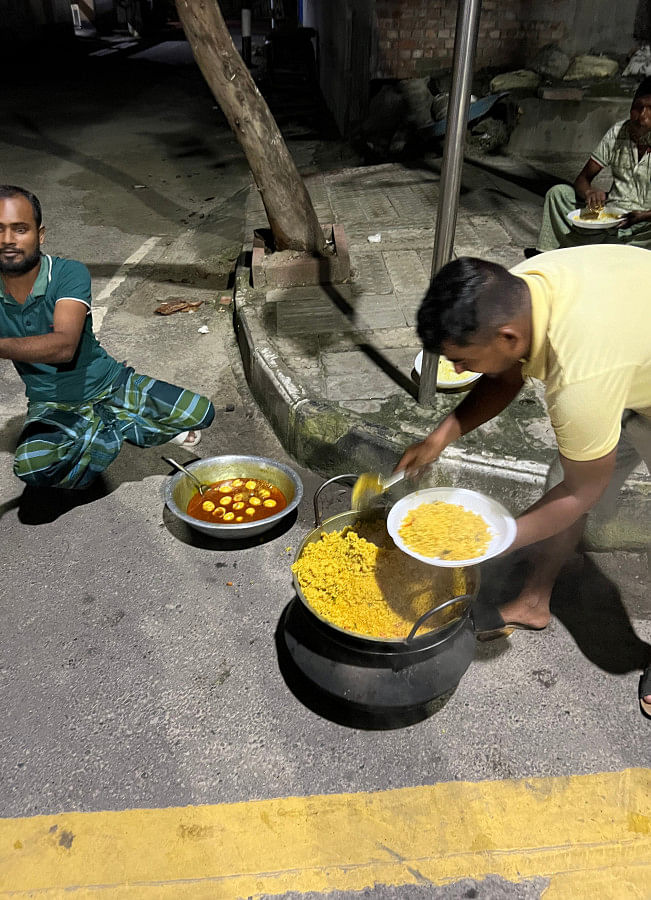
It all felt surreal. But it was not utopia. It was solidarity. A kind we had not seen in years. We did not wait to be saved. We became the saviours.
For a few strange yet beautiful days, Dhaka became something else. We stopped being strangers and became neighbours. Mosques turned into hubs. Imams made announcements in the middle of the night, warning about roaming mobs.
Social media, for once, was not just about memes and food reels. It overflowed with footage of people guarding streets, cooking at two in the morning, and singing songs by torchlight to stay awake.
And while the streets were filled with these people, a quiet, persistent question also filled the air.
Why now? Why us?
Let's be honest, this generation, the so-called Gen Z, has had a complicated relationship with politics. Most of us have seen elections go by without even being able to vote. We've grown up hearing about corruption over dinner, watching campus politics rot from the inside, and being told with a sigh that this is just the way things are.
We were tired before we never had a chance to try.
But when the system collapsed, something in us shifted.
The apolitical didn't stay on the side-lines. They stepped in. Not out of obligation but out of hope or perhaps necessity. Because there was no one else.
And it wasn't just Gen Z alone this time. Everyone showed up. Doctors showed up without being paid. Lawyers gave legal advice on Facebook Live. "Resilience," once a hollow buzzword we clapped for in donor-funded webinars, found a real home in our WhatsApp groups, rooftop gatherings, newsfeeds, and even dinner tables.
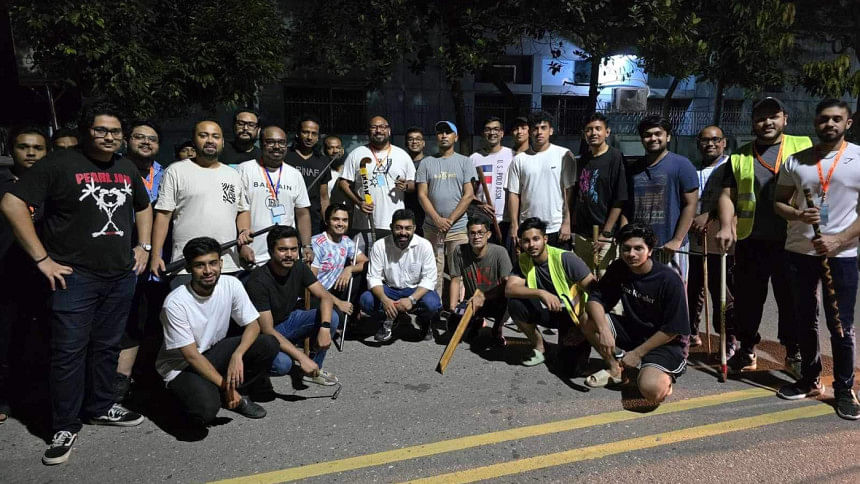
There were no loud directives from officials. No protocol. No emergency SMS. And yet, somehow, we knew what needed to be done and we did it anyway. Together.
And now that the city is returning to its old rhythm after a year, with slow-moving cars and half-hearted press briefings, not by the old leaders though but by faces with familiar excuses, we are left with another simple question:
Why do we wait for everything to fall apart before we remember how to build?
We shouldn't need another breakdown to remember the strength of standing guard for one another. We shouldn't only discover our spirit when the structure is stripped away. We must act in solidarity before the anarchy, not only during the anarchy.
Photo: Collected / Sami Doha / Palash Khan

 For all latest news, follow The Daily Star's Google News channel.
For all latest news, follow The Daily Star's Google News channel. 




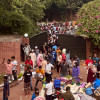



Comments